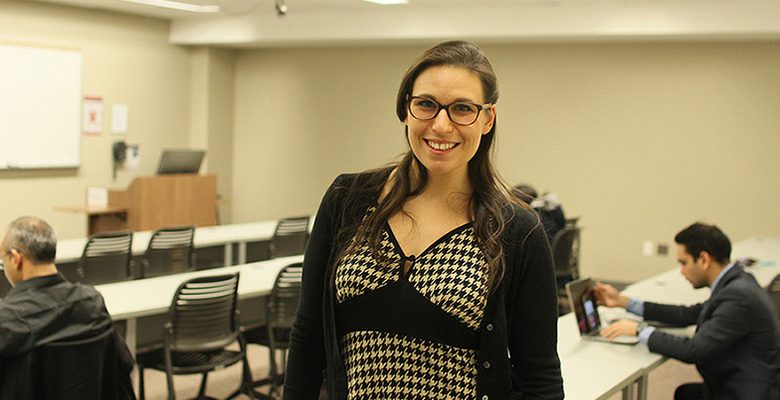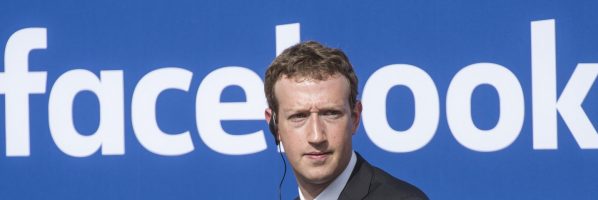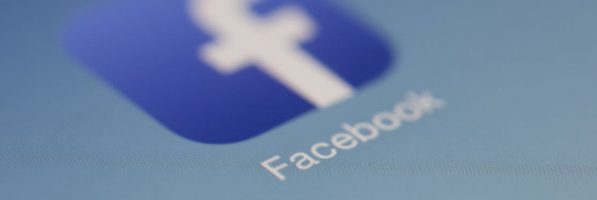The Newest Tech Jobs Perfect for Business School Grads

As tech companies grow, they need talented people who can help them negotiate the transition from the two-guys-in-a-garage stage to the phase with the sprawling office parks and C-Span depositions. For these ever-changing needs, MBA candidates can be a perfect fit for the newest tech jobs.
Continue reading…Top MBA Recruiters: Hootsuite

In 2008, Ryan Holmes was trying to manage multiple social media networks while working at Invoke Media. Dissatisfied with the options, he, Dario Meli, and David Tedman developed their own platform that became the basis for Hootsuite.
Although Hootsuite began as just a trio, the company now has more than 1,500 employees and maintains 13 offices around the globe. As it is a still-expanding firm, the company is an alluring option for those who are interested in the challenge of finding new business and increasing a company’s presence in the marketplace.
Continue reading…How a Rutgers Part-Time MBA Led to a Dream Job, and More – New York News

Let’s explore some of the most interesting stories that have emerged from New York City business schools this week.
Part-Time MBA Proves to be a Steppingstone to Dream Job – Rutgers Business School
From running phone sales in Manhattan, to working her way up the corporate business to business ladder, Allegra Kipnis, a part-time MBA candidate from the Rutgers Business School in New Brunswick, found her “dream job.”
In a recent profile with the school, Kipnis divulged that earning her MBA helped her earn multiple promotions with Verizon. But, even after being let go, she (with the help of the Rutgers community) helped her refine her career path on the way to a dream role with Panasonic as an internal communications specialist.
“The MBA program gave me the tools I needed to eventually land my dream job, but funny enough, after all I had learned, it turned out to be just one more step in the story of my career,” she said in the interview.

Kipnis, a part-time MBA candidate at Rutgers / photo via Rutgers.edu
You can more about Kipnis’ career path and the Rutgers Business School part-time MBA program here.
A Combination of Personality Traits Might Make You More Addicted to Social Networks – Binghamton School of Management
The Binghamton University School of Management recently published new research, “Personality Predictors of IT Addiction,” in which assistant professor of management information systems Isaac Vaghefi, along with DePaul’s Hamed Qahri-Saremi, examined which collection of personality traits often leads to social networking addiction among 300 college-aged students: neuroticism, conscientiousness, and agreeableness. Vaghefi writes:
“It’s more of a holistic approach to discover what kind of people are more likely to develop an addiction. Rather than just focusing on one personality trait, this allows you to look at an all-inclusive personality profile.”
Read more about the duo’s research here.
Admissions Bridge Connects Diverse Undergraduates to MBA Possibilities – Johnson School of Management Feed
The SC Johnson School of Management blog recently published an overview of the school’s second annual Johnson Admissions Bridge—an event that encourages “undergraduate women and students from underrepresented backgrounds at Cornell to consider business school and discover ways to begin preparing now.”
The Bridge is “part of a larger initiative to ensure a diverse population is offered the opportunity to attend business school.” Judi Byers, executive director of admissions and financial aid at Johnson, explains:
“At Johnson, we have both an opportunity and a responsibility to contribute to the pipeline of diverse talent ultimately seeking entry into top business schools and the companies and organizations they will lead afterward. The Bridge is a way to connect with our undergraduate students here at Cornell and gives us the chance to talk with them about potential career paths and how an MBA might offer value to their short and long term career goals.”
Learn more about the Cornell Bridge here.
Harvard Looks At Facebooks Attempt to Take on Fake News

The amorphous impact social media has had on the collective social conscious, especially since the 2016 U.S. general election, has become a striking waypoint of how we all may interact in the near future. To potentially combat the negative outcomes of it, Facebook has crafted plans to transform its platform into a forum for “more meaningful social interactions,” even if it comes at a great cost to its founder, Mark Zuckerberg. Experts from Harvard Business School recently discussed the potential changes.
The Reason Digital Ads Seem So Personal, According to Columbia Business School Research

Ad optimization, at its core, was always about effectively persuading human emotion. Those consumer habits, according to new research from the Columbia Business School, can be traced right down to individual digital footprint, helping “people overcome their human limitations.”
In new research entitled “Psychological Targeting as an Effective Approach to Digital Mass Persuasion” published in the Proceedings of the National Academy of Science, Assistant Professor of Business Management Sandra Matz’s team explores a new development in the idea of “personalized persuasion.” Thanks to the accessibility of our digital footprints, marketers can now tailor persuasive messages to a “person’s fundamental character traits and psychological needs.”
Professor Matz and her co-authors conducted three experiments in which they targeted over 3.5 million Facebook users based on “Likes,” then measured users’ reactions (i.e. “clicks” and “conversions”) to “persuasive appeals in the form of Facebook ads that either aligned with or ran counter to the users’ psychological profiles.”
In one experiment, the researchers customized online beauty retailer ads that targeted either introverts or extroverts, based on their unique Facebook Likes. The researchers found that “matching the content of persuasive messages to individuals’ psychological characteristics resulted in up to 40 percent more clicks and up to 50 percent more purchases than their mismatching or un-personalized messages.”
While psychological targeting certainly has many advantages when it comes to product positioning, it has the potential to be more insidious. On a more individual level, psychological targeting can easily be “used to exploit weaknesses in people’s character and persuade them to take action against their best interest,” such as Facebook users with psychological traits related to pathological or compulsive behaviors.
The authors actively embrace the numerous ethical questions that surround the application of psychological targeting:
“How do we as consumers and society at-large want to use this new technology? In what settings do we want to facilitate its application, and when do we want to restrict it? For which purposes should we use it, for which should we not? Under which agreements should we be allowed to implement it, and with which required degree of transparency?”
Do Social Networks Affect Our Brains? Two Tuck Professors and a UCLA Professor Research the Truth

We’re you surprised by the results of the 2016 election? According to Tuck Associate Professor of Business Administration Adam Kleinbaum and his research partners—Dartmouth Associate Professor of Psychological and Brain Sciences Thalia Wheatley and UCLA Social Psychology Assistant Professor Carolyn Parkinson—you can blame social media.
In their latest paper, “Spontaneous Neural Encoding of Social Network Position,” the group reviewed how surrounding ourselves with a close-knit group of like minds, such as on social media, can have real-world consequences in politics, business, and more. According to their paper, there’s something called the “naked emperor effect” that occurs when we fall into the trap of only relying on information from trusted networks. The phrase, taken from The Emperor’s New Clothes, explains the tendency of people to place themselves in a bubble to exchange information that no longer holds true.
For their research project, Kleinbaum and Wheatley set out to answer the question, “Do friends see the world in the same way? And if so, what are the implications of that?” To gain insight into the question—including how social networks interact with the physical structure of the brain—they asked 42 first-year Tuck students to watch a series of videos while hooked up to an fMRI machine. They found some interesting results.
According to the scans, the more similar two people’s neural responses the more likely that they would be friends. From this, the authors’ surmised that people who have similar world views are more likely to be friends and that spending time together causes “neuroplastic convergence,” or a physical change in the brain to react similarly. Basically, the human brain can and will evolve to recognize one’s place in a group.
The implications of this research can have some profound effects for companies. Since most people tend to interact with like-minded people and to increase cohesion with their network overtime, this can create a false sense of security. The key is to help your employees be exposed to different ways of thinking.
“Executives worry a lot about being able to anticipate the next big thing, or being disrupted if they fail to anticipate the next big thing,” Kleinbaum explained. “Being exposed to different ways of thinking helps us break out of our thought worlds and imagine possibilities we otherwise might never have thought of.”
To read a more in-depth review of the research paper visit the news release on the Tuck School website. Or you can find the full paper in the April issues of Nature Human Behavior.
